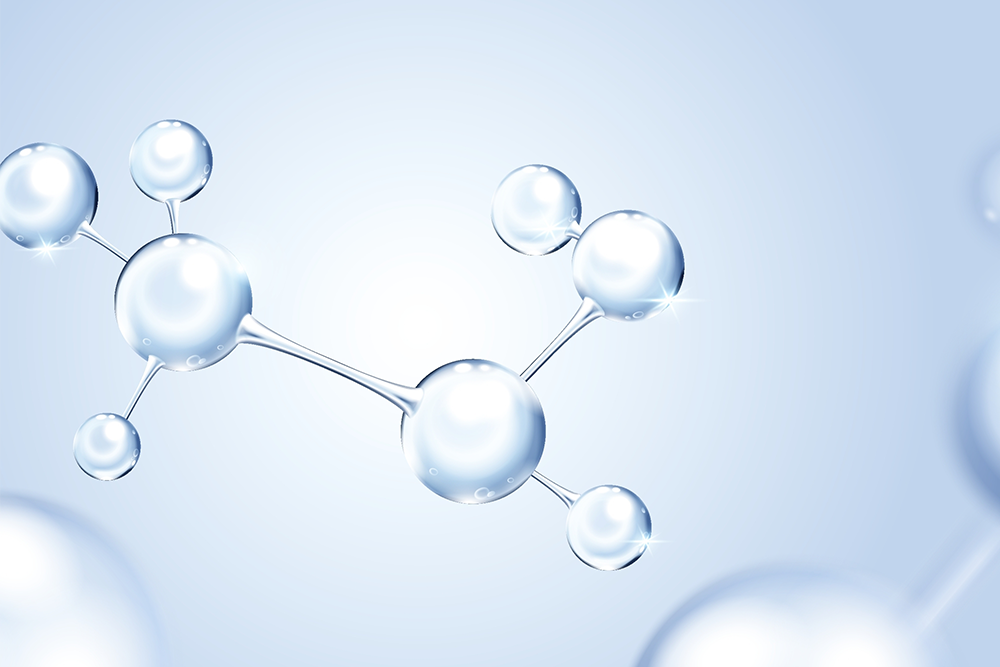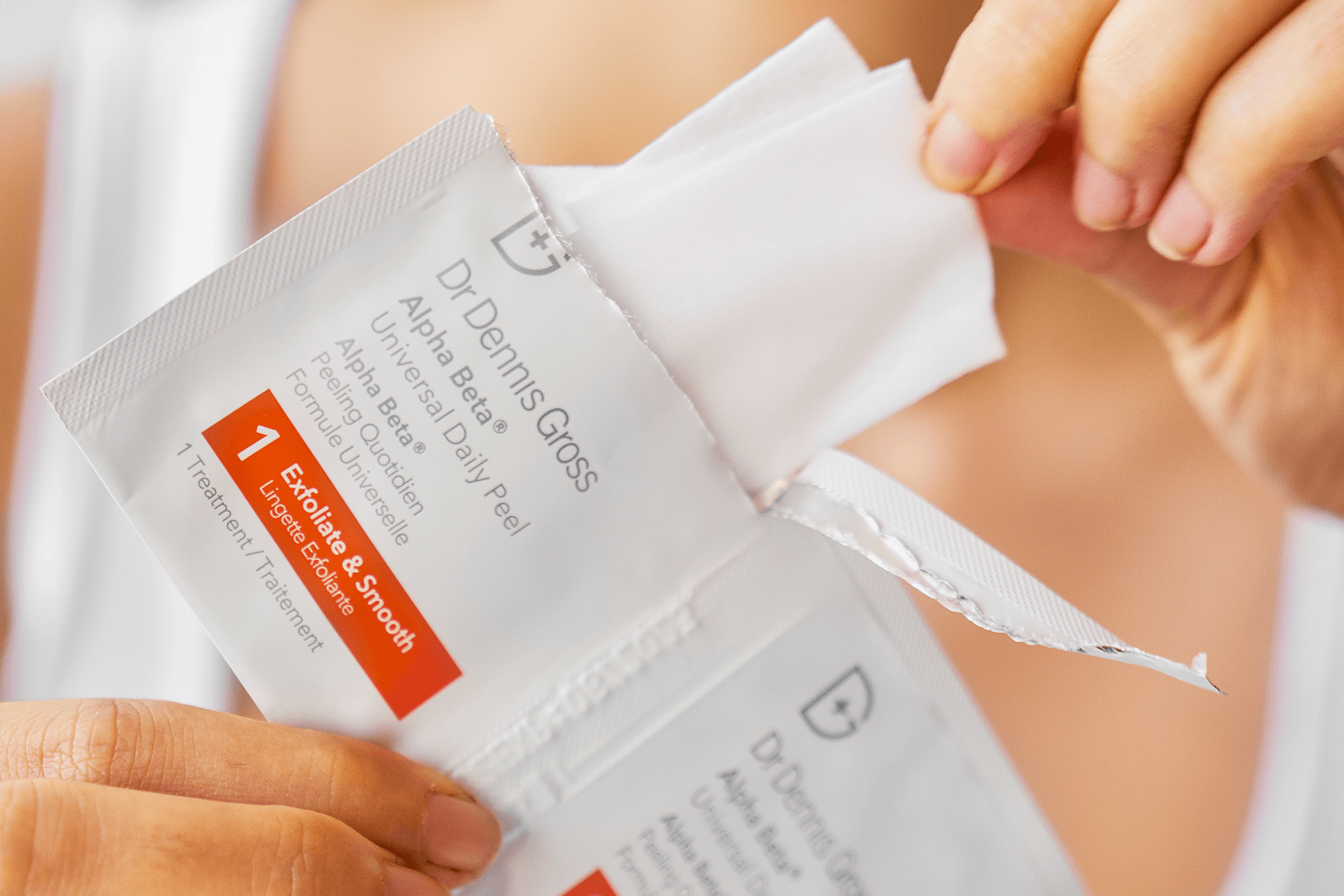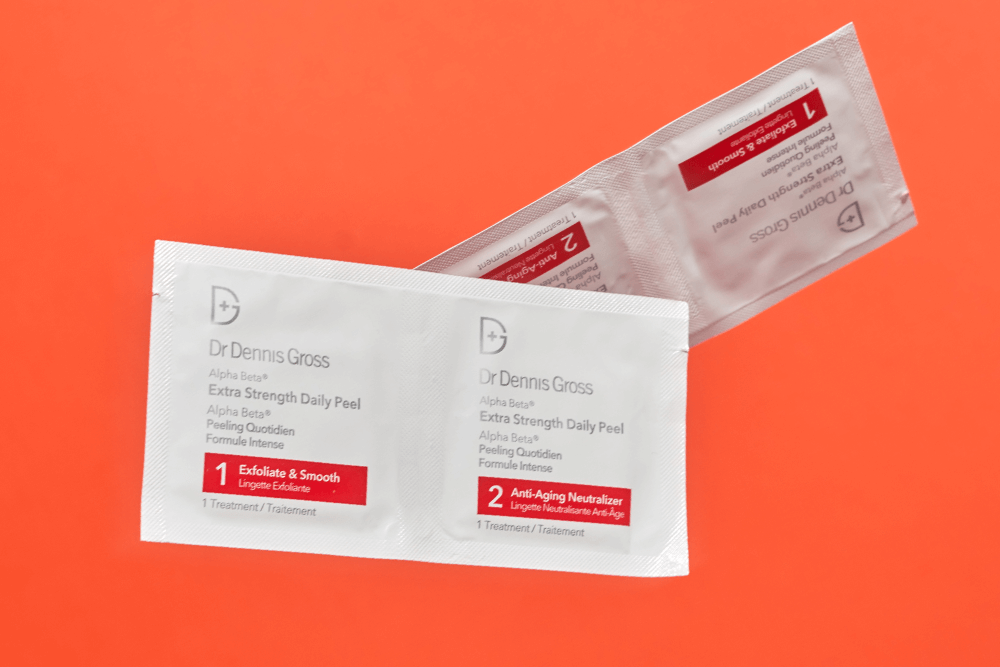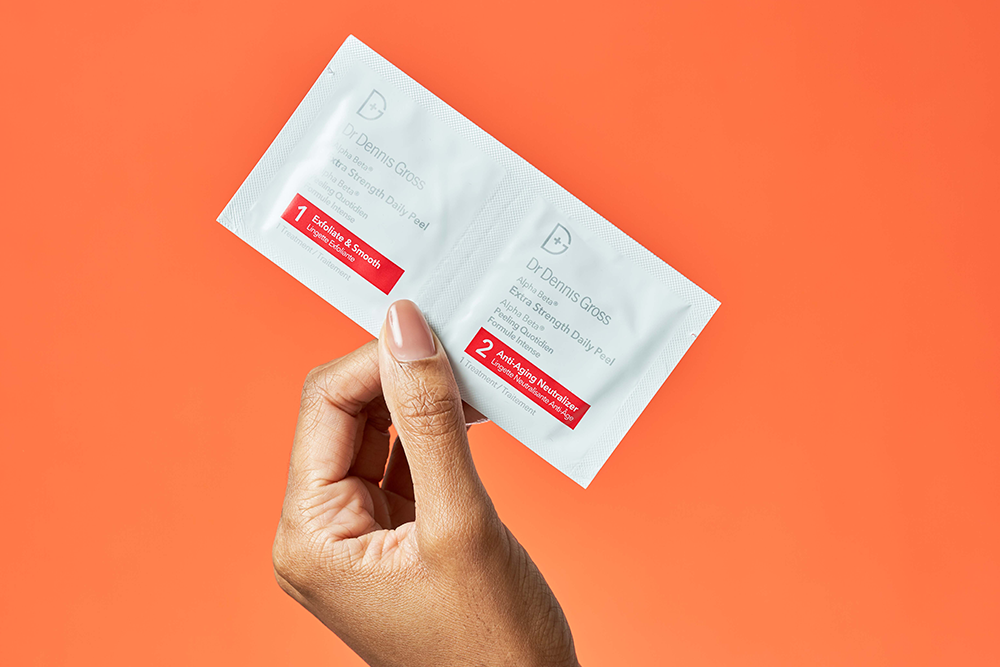The+Source
Peptides aren’t usually the headliner in a person’s skincare regimen (that role typically goes to ingredients like alpha and beta hydroxy acids, retinol, or vitamin C). But their below-the-radar status doesn’t mean they’re any less essential to a well-rounded routine. If you’ve been peptide-curious, now’s the time to explore more about this skincare essential.
Peptides: a brief definition
Peptides are chains of amino acids which make up the building blocks of essential proteins (like collagen and elastin) in skin. They help stimulate the production of these essential proteins, to keep your skin firmer, plumper, and healthy-looking.
How do peptides work in skin?
The body produces amino acids, of course, but its output decreases over time, which is part of the reason the levels of collagen and elastin in your skin dwindle as you get older. But when you do things like go outside without SPF (ahem), UV rays degrade your collagen and elastin, and that depletes their amounts even more. As collagen begins to fray, the long chains of amino acids described above snap apart and become the short-chain amino acids known as peptides.
Peptides send a message to the body that’s usually: “Hey, breakage over here. Send in some repairs on the double.” When that peptide SOS comes from skin, specifically, the body produces more collagen in the area in response (that’s how it fixes things).
Here’s where it gets cool: Scientists have discovered that applying lab-made peptides to skin triggers the same bodily response that actual peptides do. That means you can get comparable benefits (think extra collagen) without needing to incur skin damage.
For example, if you put signal peptides onto your skin, you’ll trick the body into thinking that your collagen and elastin are breaking down, and it will respond by pumping out extra collagen and elastin fibers. (The body is smart, but not that smart.) This will result in a plethora of both proteins, and skin that looks firmer and bouncier. Some specific signal peptides that work really well in skincare are acetyl hexapeptide-8, palmitoyl tripeptide-1, palmitoyl tetrapeptide-7, and oligopeptide-2.
What are the types of peptides?
“Peptides” is actually a blanket term. There’s no one single peptide; there are multitudes. And different peptides serve different functions. There are certain ones that “signal” the body to ramp up collagen production (as just described). “Carrier” peptides help deliver specific trace elements (such as copper and magnesium) from Point A to Point B in skin — particularly helpful in wound healing as those two elements are critical to certain enzymes responsible for collagen and elastin growth. A third peptide type, “neurotransmitter” peptides are actually already present in injectable neuromodulators like Botox. These kinds of peptides thwart nerve transmissions from reaching their targets (such as the receptor in a muscle that tells it to contract). Although these targets are deep within muscles (hence the reason these products are typically injected), some studies have shown that topically applied neurotransmitter peptides might have a similar, albeit less dramatic, effect.
What are the benefits of peptides in skincare?
Peptides are a skincare favorite because of their long list of benefits including:
- Strengthened moisture barrier: this is key to keeping hydration in and irritants out. A stronger skin barrier means overall more healthy skin.
- Increased collagen production: collagen is key for stronger, younger-looking skin. Increased production of collagen leads to fewer fine lines and wrinkles.
- Firming & thickening: increased collagen production also improves skin firmness & thickness.
- Elastin: peptides stimulate elastin production which make skin appear firmer and tauter.
Why should you add peptides to your skincare routine?
Peptides are like the perfect party guest — no drama. They play well with pretty much every other ingredient, including vitamin C and retinol, and get along with all skin types, even sensitive ones. Incorporating peptides into your daily regimen is low risk and all upside. (The one ingredient to be wary of is hydroxy acids. The pH of alpha and beta hydroxy acids can really mess with peptides’ pH. To be safe, if you’re using a concentrated AHA or BHA product, like a peel or a toner, ensure it contains a neutralizing step, which will reset the skin’s pH before you apply your peptide cream.)
Even if you’re already diligently using other collagen-stimulating ingredients, such as the aforementioned vitamin C and retinol, or have added a red LED device to your rotation, you can still benefit from peptides’ power. You’ve seen us say that due to the wide variety of free radicals in the world, there’s no one antioxidant that can tackle them all. That’s the reason our dermatologist founder Dennis Gross, MD, advocates applying a mix of antioxidants to skin — it offers the most effective neutralization opportunity. It’s a similar idea when it comes to collagen. All these ingredients and devices stimulate different skin receptors to trigger collagen production. The greater the number of activated receptors, the better your chances of spurring collagen formation.
Why is a peptide’s weight important?
In peptides, size correlates to weight. The shorter a chain of amino acids is, the lower its weight will be. Small, light chains are able to penetrate skin more deeply than longer, heavier ones. The benefit of using a combination of peptide weights in a single formula is that you can reach a range of skin layers when you apply one product. If you think of skin as a series of descending levels, the individual peptides get off on different floors to do their thing as your skincare product absorbs into the tissue.
Can peptides replace injectables like fillers?
That would be nice, right? When your dermatologist inserts a syringe full of hyaluronic acid or another material into your skin, they’re placing that substance much, much deeper than your topical product can get. (Just one more reason these types of injections should only be performed by a qualified medical professional.) So, sadly, slathering a peptide serum on entrenched frown lines won’t erase the need for a high-powered, MD-administered solution. However, applying a peptide product at least once a day (morning or night — your pick) will help reinforce the collagen and elastin fibers in that area over time. As a result, you’ll likely find that the effects of your chosen injectable last longer than they used to. And that’s not the only reason to supplement your filler sessions with a daily peptide serum. Topical peptides have an additional benefit that fillers don’t: Used consistently, peptides can help improve the appearance of skin texture, which is something no injectable can yet claim.
Discover Dr. Dennis Gross Skincare for All Your Skincare Needs
For more skincare tips from the experts at Dr. Dennis Gross, check out our blog’s newest content today. Shop the collection of Dr. Dennis Gross bestselling skincare by dermatologists.






